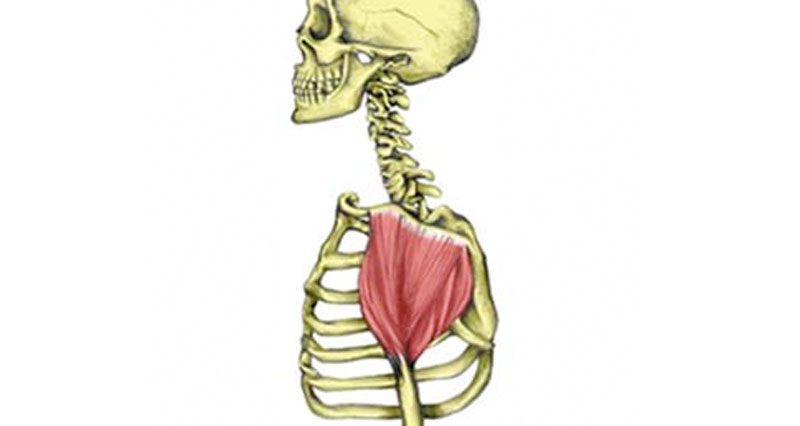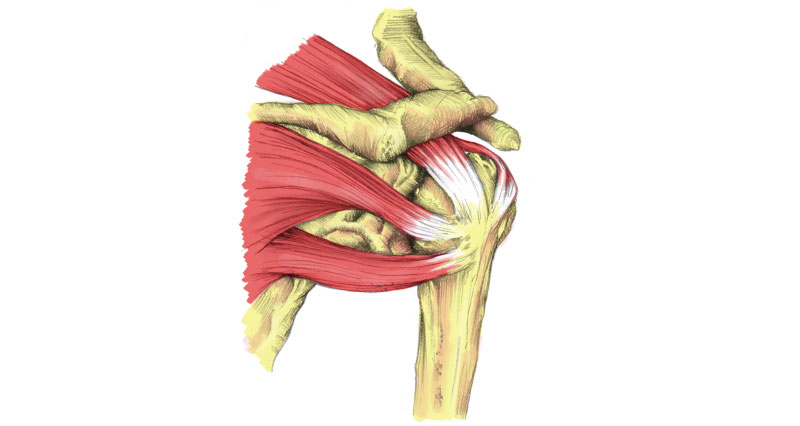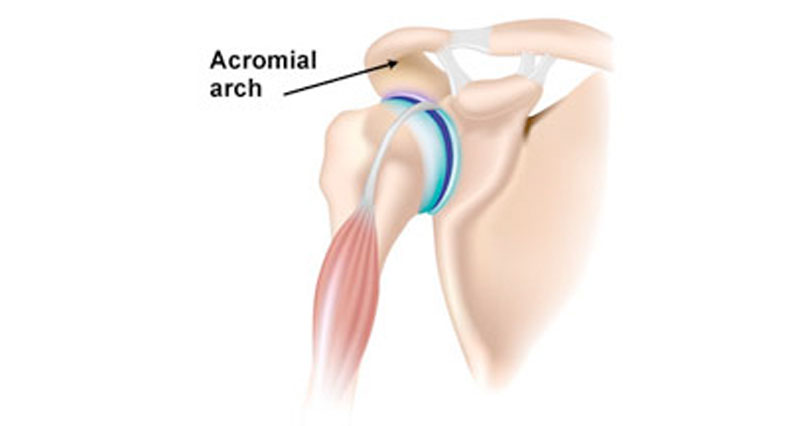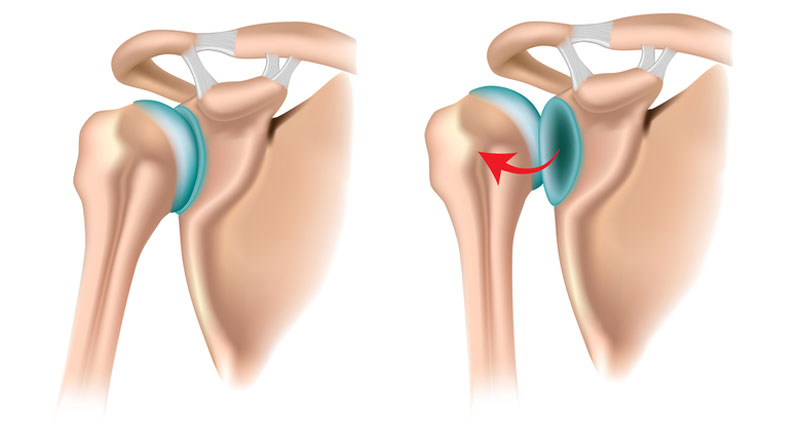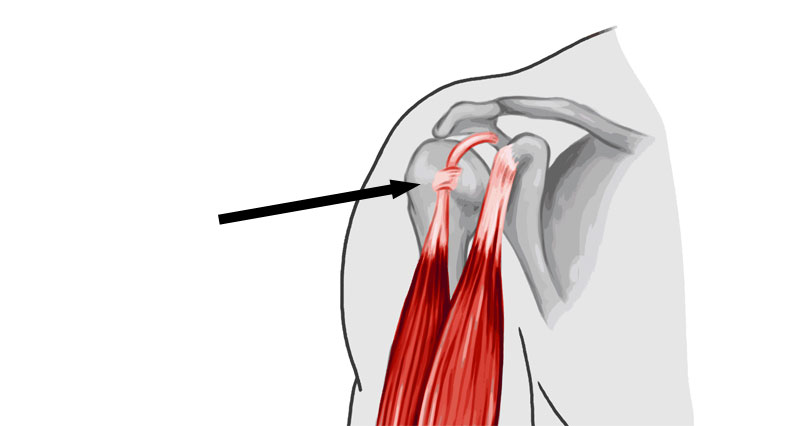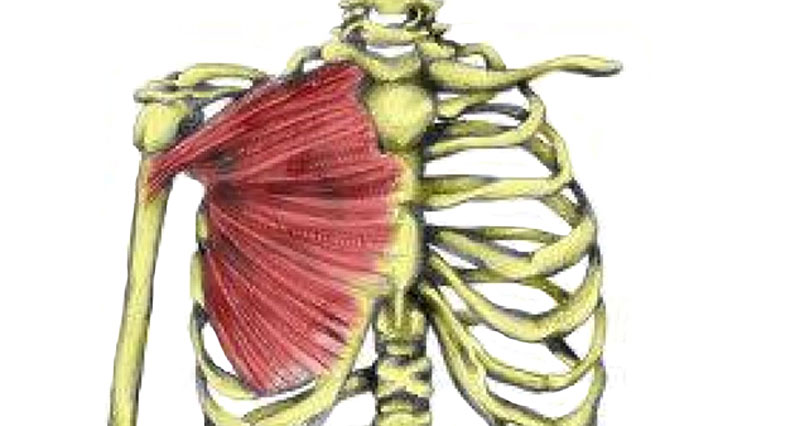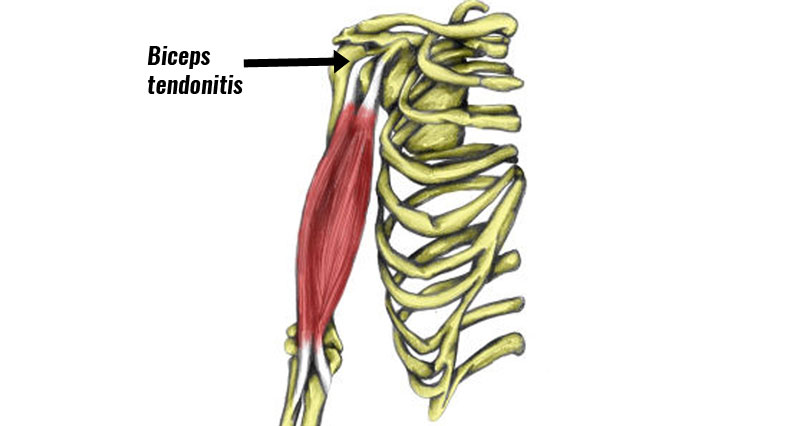Deltoid pain relates to the large deltoid muscle on the top & outside of the shoulder. Although not a common injury, an injured deltoid can result in pain at the front, side or back of the shoulder. A contusion is more common and occurs from direct impact or trauma to the muscle.
Deltoid muscle strain
- Symptoms include sudden pain in the deltoid muscle at the front of the shoulder is common.
- Pain is reproduced when lifting the arm from your side to the front keeping it straight against resistance.
- Or when you lift your arm from your side up sideways against resistance if the strain is in the mid portion or top of the muscle.
- Tenderness and swelling where the muscle is torn may also be visible and for very severe injuries bruising may develop.
A rotator cuff strain may have similar symptoms to a deltoid strain and is probably far more common so should always be considered.
What is a deltoid strain?
The deltoid muscle is the big muscle on the shoulder. It has three parts; the front or anterior, middle and back or posterior. The muscle lifts the arm up sideways. The front part helps to lift the arm up forwards, known as shoulder flexion and the back part helps to lift the arm up backwards, known as shoulder extension. Muscle strains are categorised under grades 1, 2, or 3 depending on how bad they are.
Grade 1 deltoid strain
Symptoms – You might have tightness in the muscles. You may be able to use your arms properly or do press-ups easily. You probably won’t have much swelling. Trying to lift your arm up sideways or to the front or back of the body probably won’t produce a lot of pain.
Treatment – Apply ice or cold therapy and compression wrap for the first 24 hours (15 mins at a time) then heat. Light exercises – 4 sets of 10 repetitions 3 times a week (for example). Gradually build up the weight to strengthen the muscles. The athlete should ease down on training for a week or two but it is unlikely they need to stop unless they are getting pain. A doctor or sports therapist can use sports massage to speed up recovery as well as ultrasound or electrical stimulation.
Grade 2 deltoid strain
Symptoms – You probably cannot use your arm properly or do press-ups. You may get occasional sudden twinges of deltoid pain during activity. You may notice swelling. Pressing it causes pain. Lifting your arm up to the front, side, or back against resistance causes pain.
Treatment – Ice for 3 to 5 days. See a sports injury specialist who can advise on rehabilitation. Apply heat (hot water bottle, hot baths, see a specialist for ultrasound). From day 7 do light, pain-free exercises (4 sets of 10 reps three times a week). Cycling 2 to 3 times a week. Begin stretching (hold stretches for 30 secs, 5 times a day). From day 14 start to slowly get back into sports activities.
A doctor or sports therapist can use sports massage techniques to speed up recovery and advise on a rehabilitation program.
Grade 3 deltoid strain
Symptoms – You will be unable to move your arm and are likely to be in severe pain. Bad swelling will appear immediately. Contracting the deltoid muscle will be painful and there may be a bulge or gap in the muscle. Expect to be out of competition for 3 to twelve weeks or more.
Treatment
- Week 1: You should seek medical attention immediately. P.R.I.C.E. (Rest, Ice, Compress, Elevate.)
- Week 2: Pain-free static contractions (if it hurts don’t do it). Heat with a hot water bottle, hot bath, or ultrasound.
- Week 3: All of the above plus increase the intensity of static contractions 4 sets of 10 reps 3 times a week.
- Week 4: Pain-free exercises e.g. light lateral raises and rotator cuff exercises, 4 sets of 10 reps 3 times a week. Cycling 2 or 3 times a week. Start stretching exercises, hold for 30 secs, 5 times a day.
- Week 5: Build up exercises, 4 sets of 6 to 8 reps 2 days a week. Gradually build up to sports-specific exercises.
A doctor or sports therapist can use sports massage to speed up recovery as well as ultrasound or electrical stimulation. In some cases, surgery is required. If you suspect a grade two or three injury I recommend you see a Sports Injury Specialist immediately.
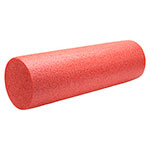
Foam Rollers
Deltoid contusion
A deltoid contusion is a bruise in the deltoid muscle. This occurs after a direct impact on the muscle, usually from a hard, blunt object such as a hard ball or an opponent’s elbow!
Symptoms of a Deltoid Contusion
- Pain in the muscle after impact.
- Pain and difficulty when lifting the arm to the side.
- Tender to touch the muscle.
- Bruising appears.
- There may be some swelling.
Treatment
- Rest the arm, and apply a sling if necessary to relax the muscle.
- Apply ice or cold therapy products as soon as possible and regularly to ease deltoid pain, bleeding, and inflammation.
- In most cases, a deltoid contusion will heal naturally within 1-2 weeks.
- If symptoms persist visit a doctor to rule out further damage.
- Also look out for neural signs such as tingling, numbness, and weakness in the arm or hand which may indicate nerve damage.
Read more on Contusions.
